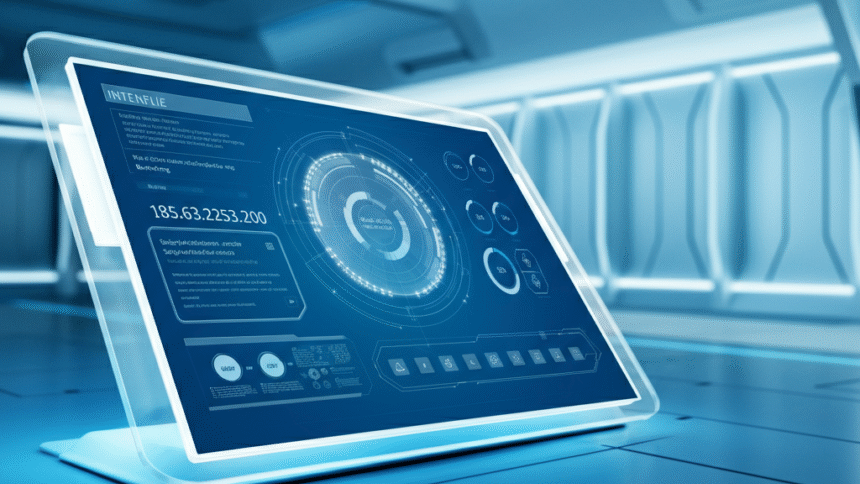
When it comes to navigating the digital world, one of the core elements that help in identifying and locating devices is the IP address. The IP address “185.63.2253.200” holds particular importance when tracing web traffic, ensuring secure browsing, and managing digital communications. In this article, we’ll dive deep into what makes an IP address like this significant, how to identify its role in the network, and why it matters to both consumers and businesses. Let’s explore its structure, usage, and potential applications.
What is an IP Address?
Before diving into the specifics of “185.63.225.3.200,” it’s important to understand what an IP address is. The term “IP” stands for Internet Protocol, and it serves as a unique identifier assigned to every device connected to a network. Whether it’s a website, smartphone, or computer, each device needs an IP address to communicate with other devices over the internet.
There are two primary types of IP addresses: IPv4 and IPv6. IPv4 addresses are the most common and are based on a 32-bit format, like the example “185.63.225.3.200”. However, with the growing demand for IP addresses, the IPv6 format, a 128-bit address, is now becoming increasingly important.
IPv4 Address Breakdown
To understand how “185.63.225.3.200” is structured, let’s break it down:
- 185 – The first segment
- 63 – The second segment
- 225 – The third segment
- 3 – The fourth segment
- 200 – The fifth segment
Each number ranges from 0 to 255, and collectively, they create a unique identifier on the network.
IP Address 185.63.225.3.200: What Does It Tell Us?
Now that we understand what an IP address is, let’s focus on “185.63.225.3.200.” This specific address is part of the IPv4 address range. But, what makes this IP significant?

- Geolocation and Identification: This IP address is registered with a specific ISP (Internet Service Provider) and geolocated to a particular region, providing insights into where the device or server using this address is located geographically.
- Network Routing: When packets of data are transmitted over the internet, they are directed to their destination using IP addresses. This specific address would direct the flow of data to the correct endpoint.
- Security & Firewall Configuration: Certain applications and websites may block or allow specific IPs based on security protocols. The address “185.63.225.3.200” may have been flagged in some security systems, prompting either access or restriction.
The Role of DNS in Mapping IPs
A critical technology that enables the use of IP addresses is the Domain Name System (DNS). DNS translates the human-readable domain names (like google.com) into the IP address that computers use for communication (like 185.63.225.3.200). Without DNS, we’d have to remember complicated numerical strings every time we wanted to access a site.
Tracing the Owner of 185.63.225.3.200
Every IP address is owned by a particular organization or entity, typically an ISP. When it comes to tracking an IP like “185.63.225.3.200,” the process is straightforward:
- ISP Information: The first step is identifying the ISP. Using various tools available online, you can look up the ownership and location of this IP address.
- Geolocation Data: Through IP geolocation services, it’s possible to trace the approximate geographical location of this IP. However, it’s important to note that the location may not always be 100% accurate, especially with dynamic IPs.
- Whois Database: For a deeper dive into the registration information of this IP, tools like WHOIS can help reveal who owns the address and more details about it, including their contact information.
Why IP 185.63.225.3.200 May Matter to You
While many users may not often pay attention to IP addresses, understanding them can be useful in various scenarios:
- Network Management: Network administrators and IT professionals often need to track IP addresses to monitor activity, secure their networks, or even block suspicious IPs.
- Website Security: Websites often use tools to detect and mitigate DDoS (Distributed Denial of Service) attacks, and knowing the IP addresses that are trying to access the site can help in preventing such attacks.
- Troubleshooting Connectivity Issues: When troubleshooting connectivity issues, an understanding of how IPs function helps isolate potential problems, such as IP conflicts or routing issues.
How to Secure Your Network from Unwanted IPs
Securing your network from unauthorized access starts with controlling the IP addresses that can access your devices. Here are a few tips:
- Use Firewalls: A firewall can filter incoming and outgoing traffic based on IP addresses, helping to block suspicious sources.
- VPN for Privacy: Virtual Private Networks (VPNs) allow you to mask your true IP address, adding a layer of anonymity to your online activity.
- Blacklist Suspicious IPs: If you identify malicious IP addresses, you can blacklist them to prevent any further connections.
Using 185.63.225.3.200 for Online Privacy
Another application of IP addresses is in maintaining privacy and security online. When browsing the web, your IP address serves as a unique identifier for websites and services you interact with. This is why many individuals use VPNs, which mask their real IP address (like “185.63.225.3.200”) to maintain their privacy.

How VPNs Help Mask Your IP
A VPN (Virtual Private Network) helps by replacing your real IP address with one from a server operated by the VPN provider. This not only enhances privacy but also allows users to access region-restricted content and avoid tracking.
The Importance of Monitoring Your IP Address
For businesses, monitoring the IP addresses that interact with their servers is essential for preventing cyber threats. Here are some key reasons why it’s necessary to monitor your IP:
- Data Breach Prevention: Unusual activity from unknown IPs can indicate a potential data breach attempt.
- Legal Compliance: Many businesses must comply with regulations concerning data protection and internet activity.
- Protection from Fraud: Monitoring IP addresses helps detect fraudulent activities such as account takeovers.
Conclusion: The Role of 185.63.225.3.200 in Today’s Digital World
In conclusion, “185.63.225.3.200” represents more than just a string of numbers. It is an integral part of how devices connect and communicate within the vast network that is the internet. Whether it’s for identifying the location of a server, securing your digital presence, or troubleshooting network issues, understanding IP addresses provides valuable insights into maintaining the health of a network. As the digital world continues to evolve, having a basic understanding of IP addresses like 185.63.225.3.200 can help individuals and businesses navigate online security, privacy, and network management effectively.
FAQs Related to IP Address 185.63.225.3.200
1. What is an IP address and why is it important?
An IP address is a unique identifier that devices use to communicate over the internet. It’s important because it helps direct data packets to the correct destination, ensuring the smooth operation of online interactions.
2. Can I trace the location of IP address 185.63.225.3.200?
Yes, IP geolocation services can provide an approximate location of the device or server using the IP address, though accuracy may vary depending on the service used.
3. How can I protect my network from malicious IP addresses?
You can protect your network by using firewalls, VPNs, and by blacklisting suspicious IPs to prevent unauthorized access to your network.
Also Read This: Exploring Sodziu: An In-Depth Look at Its Relevance and Impact



